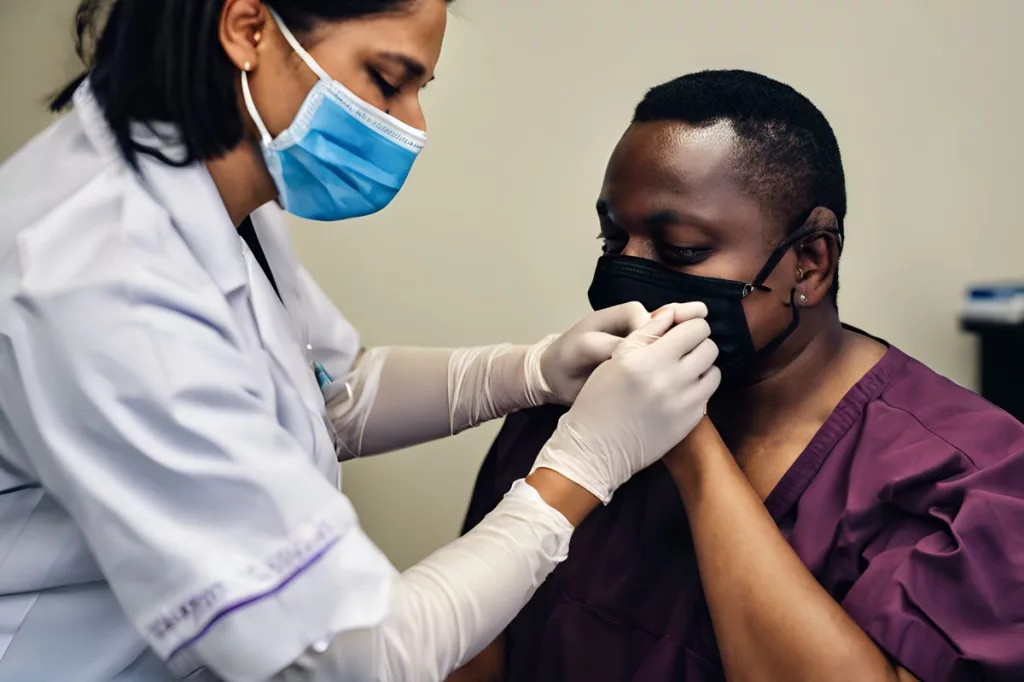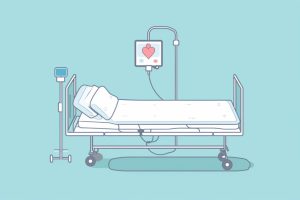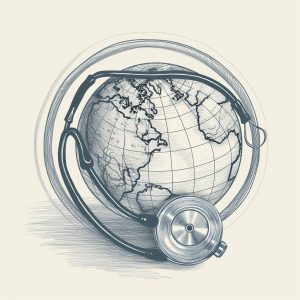The Second Presidential Health Compact in South Africa is a commitment to affordable drugs and vaccines for all, aiming to strengthen the healthcare system’s capacity to safeguard the population from public health crises. The private sector’s involvement is crucial, and the enactment of the NHI Act underscores the urgency of collective action. However, budget cuts, inefficiencies, and corruption pose substantial challenges. The compact is a testament to South Africa’s commitment to conquering these challenges and building on the successes of the initial compact, prioritizing the health of its citizens as its truest wealth.
Monkeypox, a virus related to smallpox, has evolved to include sexual transmission in addition to transmission through physical contact with infected animals, respiratory droplets, and scratches or bites. Symptoms include fever, rash, muscle aches, and swollen glands and can be fatal in severe cases. While treatments like Tecovirimat are available for severe cases, prevention through hand hygiene and seeking medical attention at the earliest sign of symptoms is critical to managing the spread of the disease. Monkeypox does not discriminate by gender, age, or sexual orientation.
South Africa has made a revolutionary stride in its healthcare policy with the enactment of the National Health Insurance Act. This law guarantees every South African access to a range of healthcare services without financial difficulties, promoting equity, sustainability, fairness, and social solidarity. The journey towards achieving this law has been long, with numerous consultations and feedback, but it marks the beginning of a new era and a promise of a healthier, brighter future for all South Africans.
South Africa has introduced the National Health Insurance (NHI) Bill, a revolutionary healthcare initiative aimed at eliminating inequalities in healthcare access based on social and economic status. The NHI proposes a holistic strategy that consolidates different financial resources to guarantee quality healthcare accessibility to all South Africans. The implementation of the NHI will be gradual, with critical milestones earmarked for each phase, and it serves as a crucial instrument to combat poverty and represents a step towards abolishing a biased healthcare system.
Dr. MJ Phaahla is the Honourable Minister of Health leading South Africa’s health sector. He has been fighting against Covid19 and focusing on Universal Health Coverage, human resource allocation, and infrastructure advancement in healthcare. The government is also addressing surgical procedure backlogs and HIV/AIDS, while advancing digital health systems. Dr. Phaahla emphasized the government’s commitment to enhancing the healthcare workforce, creating additional opportunities for doctors, and improving health services with infrastructure advancement.
South Africa’s National Health Insurance (NHI) Bill proposes to revolutionize healthcare by centralizing procurement of services and breaking down economic barriers. However, the bill has caused debate and skepticism, with concerns over feasibility and service quality. Despite this, the legislative process is progressing, highlighting the significance of the bill and South Africa’s dedication to social equality. Follow capetown.today for updates on this crucial trend towards healthcare for all.
Progressive Strides in Health and Wellness: An Overview of Gauteng Department of Health and Wellness in 2022
The Gauteng Department of Health and Wellness has made impressive progress in promoting health and wellness for all citizens in 2022. This includes deploying outreach teams, expanding community health centres, reducing waiting times, and focusing on the early detection and management of diabetes and hypertension. The department achieved an unqualified audit opinion and allocated over R2 billion to township enterprises. Their commitment to continuous learning and improvement ensures that every citizen in Gauteng has access to quality healthcare.
Three of Western Cape’s academic hospitals in South Africa may face a financial crisis due to a budget deficit of at least R570 million. The Groote Schuur Hospital, Tygerberg Hospital, and the Red Cross War Memorial Children’s Hospital are struggling with cutbacks in service delivery, which may lead to a depletion of their funds by January 15. The crisis is due to an unexpected public sector wage increase for which the government did not provide funding, leading to a wage deficit of R8.7 billion.
Sister Bronwyn Piedade has gained recognition in the Bishop Lavis community for her commitment to delivering patientcentered healthcare. As the facility manager of Bishop Lavis Community Day Centre, she strives to provide every resident with healthcare tailored to their individual needs.
Residents of Nomzamo and Lwandle have long faced the inconvenience of traveling for medical care. The situation is set to change with the Western Cape Department of Health’s plans to build a new, stateoftheart district hospital. This collaborative effort between the Department and the local community is expected to transform healthcare in the region.
In recognition of the strength and commitment of our leaders, Premier Kaobitsa Bushy Maape of the North West Provincial Government in South Africa underwent a minor orthopaedic procedure. This decision served as an example of the Premier’s resilience and dedication to his role, even in the midst of his busy schedule.
South Africa is currently contemplating the National Health Insurance (NHI) Bill, which could be a significant turning point for the country’s healthcare system. The bill is the result of a 12yearlong journey towards creating a healthcare system that is fair and equitable for all citizens. This legislation seeks to fulfill the aspirations of the country’s freedom fighters who declared that quality healthcare services should be accessible to everyone in a just society.
North West Health MEC, Madoda Sambatha, is making strides in enhancing healthcare services and accommodations at Joe Morolong Memorial Hospital. Two major projects will be handed over on 14 June 2023 to address the hospital’s water supply challenges and provide housing for healthcare professionals.
The North West Department of Health launched a preliminary investigation into the allegations of serious misconduct against hospital management. The investigation at MPH is part of a multiphased approach adopted by the department to resolve the challenges experienced at the hospital. MEC Madoda Sambatha emphasized that the precautionary suspension of two officials was not meant to be punitive but to ensure the investigation could proceed without hindrance. As a result, five members of the MPH management have been temporarily relocated to nearby facilities.
The Office of the Health Ombud in South Africa is bidding farewell to its first Ombud, Professor Malegapuru William Makgoba. His nonrenewable sevenyear term comes to an end on May 31, 2023. Professor Makgoba played a vital role in shaping the office’s work during his tenure, and his unique perspective and dedication to his role contributed to the growth and development of the Office of the Health Ombud.
In response to the ongoing cholera outbreak in South Africa, Minister of Health, Dr. Joe Phaahla, and Deputy Minister, Dr. Sibongiseni Dhlomo, swiftly visited the community of Hammanskraal, located north of Pretoria, to assess the situation at the Jubilee Regional Hospital and provide support.
















